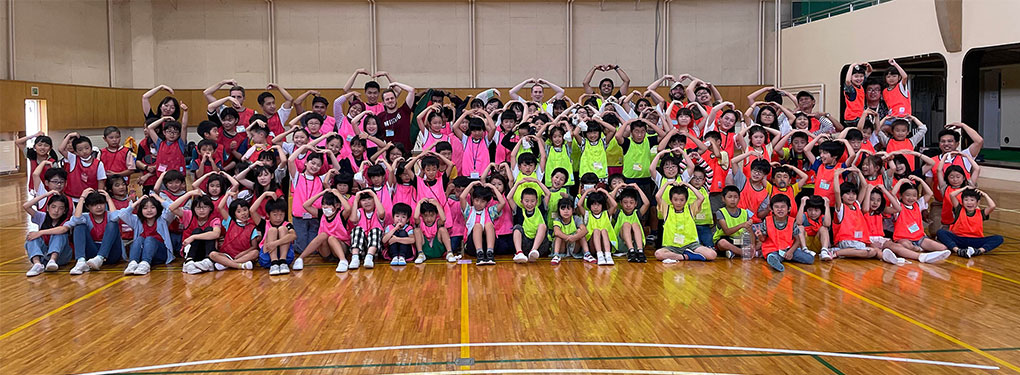こども防災協会 セーフガーディングポリシー
Children Disaster Prevention Association Child Safeguarding Policy
当団体はこどもの身体と心を守るため以下の行為をしません。
In order to protect children’s physical and mental health, Children Disaster Prevention Association must never allow staff members to:
1. 子どもを叩いたり、暴力によって身体的に傷つけたりすること。または子ども同士のそのような 行為を黙認、煽動すること。
hit, physically assault, or physically abuse children, ignore or promote such acts occurring among children.
2. 子どもに対して不適切な言葉を使ったり、侮辱的・攻撃的な提案や示唆をすること。
use language, make suggestions, or offer advice to children which is inappropriate, offensive or abusive.
3. 特定の子どもを差別したり、他の子と異なる扱いをすること。
discriminate against, show unfair preferential or differential treatment towards certain children to the exclusion of others.
4. 子どもの体を不必要に触ること。 (ただし、「抱っこ」「手をつなぐ」等の身体的接触を行うことがあります。この場合、子どもの年齢 及び発達の程度に応じてその意思(嫌がっていないか等)に十分に配慮します。子どもの意思に 関わらず健康管理上やむを得ず身体的接触を行う必要がある場合は、できるだけ同性のスタッフがあたります。)
make physical contact with children despite its necessity.
(There is a possibility that staff members do such things as carrying children in their arms or holding their hands. In those cases, children’s age and will (whether they are feeling forced towards those acts or not, etc.) must be carefully considered.
If physical contact is unavoidable for health care reasons, regardless of the child’s wishes, a staff member of the same gender will be involved as much as possible.)
5. 子どもが自分でできることを必要以上に手伝うこと。
excessively help children despite their capability.
6. 連絡先の交換について
Regarding personal information
a. 活動に関わる子ども及びその家族と活動外で個人的に連絡をとる、もしくはとろうとすること。
personally make (or attempt to make) contact with children or their family without relevance to the program/activity,
b. 活動に必要でないのに、子ども及びその家族の連絡先を聞いたり、自分個人の連絡先を 教えたりすること。
unnecessarily exchange personal contact information or ask for children’s or their family’s personal information.
7. 活動に参加している異性同士の子どもまたはスタッフが同じ部屋で寝ること。 (ただし、例外的状況かつ事前に活動拠点の責任者の許可を得ている場合を除きます。)
allow children or adults of the different gender to sleep in the same room. (There are exceptional cases with the responsible person’s permission.)
8. 自分が宿泊していない部屋に不必要に立ち入ること。特別な理由なしに異性の部屋に就寝前 から夜間、起床後から早朝に立ち入ること。 (もし必要がある場合は、まずノックをし了承を得るなど必ず明確な許諾を得ます。)
unnecessarily enter someone’s bedroom, enter bedrooms for the different gender without any specific reason during night time and in the morning.
(If it is necessary to enter the room, permission should be clearly asked first by knocking the door or asking verbally.)
9. 子どもの個人情報(写真、動画、氏名、学校名、住所、連絡先など)を不適切に扱うこと。(個人 が特定できる形でSNS上に投稿する、むやみに人に共有する等)
inappropriately handle children’s personal information (including photos, films, names, school names, home addresses and phone numbers, etc.)
e.g.) upload a photo that can identify an individual on social media, or thoughtlessly share photos with others.
また、以下の点に留意して子どもと接します。
Representatives and staff members must always make the best efforts to:
A. どのような状況が子どもにとって危険なのかを察知し、未然に対処する。
recognize what situations are dangerous to children and take precautionary measures.
B. 危険を最小限に留められるよう、計画段階で事業内容や実施場所を熟考し必要な環境を整える。
carefully consider the content of the program/activity and its location at the planning stage and prepare the proper environment in order to minimize risks.
C. 可能な限り、他者の目が届く場所で子どもと接する。密室や他者の死角を避ける。
interact with children in the sight of others where possible, avoid closed rooms and other people’s blind spots.
D. どのような問題提起や懸念も気軽に表明できて話し合えるような、オープンな雰囲気をつくる。
create an open atmosphere where participants can feel free to raise and discuss any issues or concerns.
E. 不適切な行為または虐待となりうる言動が見過ごされないように、各々が責任感を持つ。
be responsible to ensure that inappropriate or abusive behavior is not overlooked.
F. 関係者とどう接しているかについて日頃から子どもと話し、子どもが気になっていることがあれば伝えるよう促す。
talk with children on a daily basis about how they interact with the adults involved in the program/activity, and encourage them to consult if they have any concerns.
G. できるだけ子どもが自分で対応できるよう促す。すなわち、子どもの権利に関する理解や、何が適切で何が不適切か、また問題が起きた時にどうしたら良いかについて子どもたちと話し合う。
encourage children to take care of themselves as much as possible.
i.e. talk with children about their understanding of their rights, what is appropriate and inappropriate, and what to do when they are in danger.
以上の事項に関して、意図的かどうかに関わらず違反行為をする者は、事業実施中であっても、 その場で離脱を求める場合があります。 また、厳正な事情調査を行った上で、当団体の主催する今後の活動への参加を禁止する場合も あります。 参加者および関係者の心身を危険に晒す可能性のある行為、事態が発生するまたは訴えが あった場合は、活動に関与するいかなる人に対しても事実確認および団体内の調査、公的な調査に協力を求め、応じて頂きます。
Those who violate the policy above, whether intentionally or not, can possibly be asked to leave the program even while the project is in progress. Additionally, after conducting a thorough investigation, Children Disaster Prevention Association may prohibit the violator from participating in future programs/activities hosted by the organization.
If there is an act or a situation that could endanger the physical or mental health of the participants and those involved, Children Disaster Prevention Association may ask anyone involved in the act or the situation to respond to an internal or public investigation.

